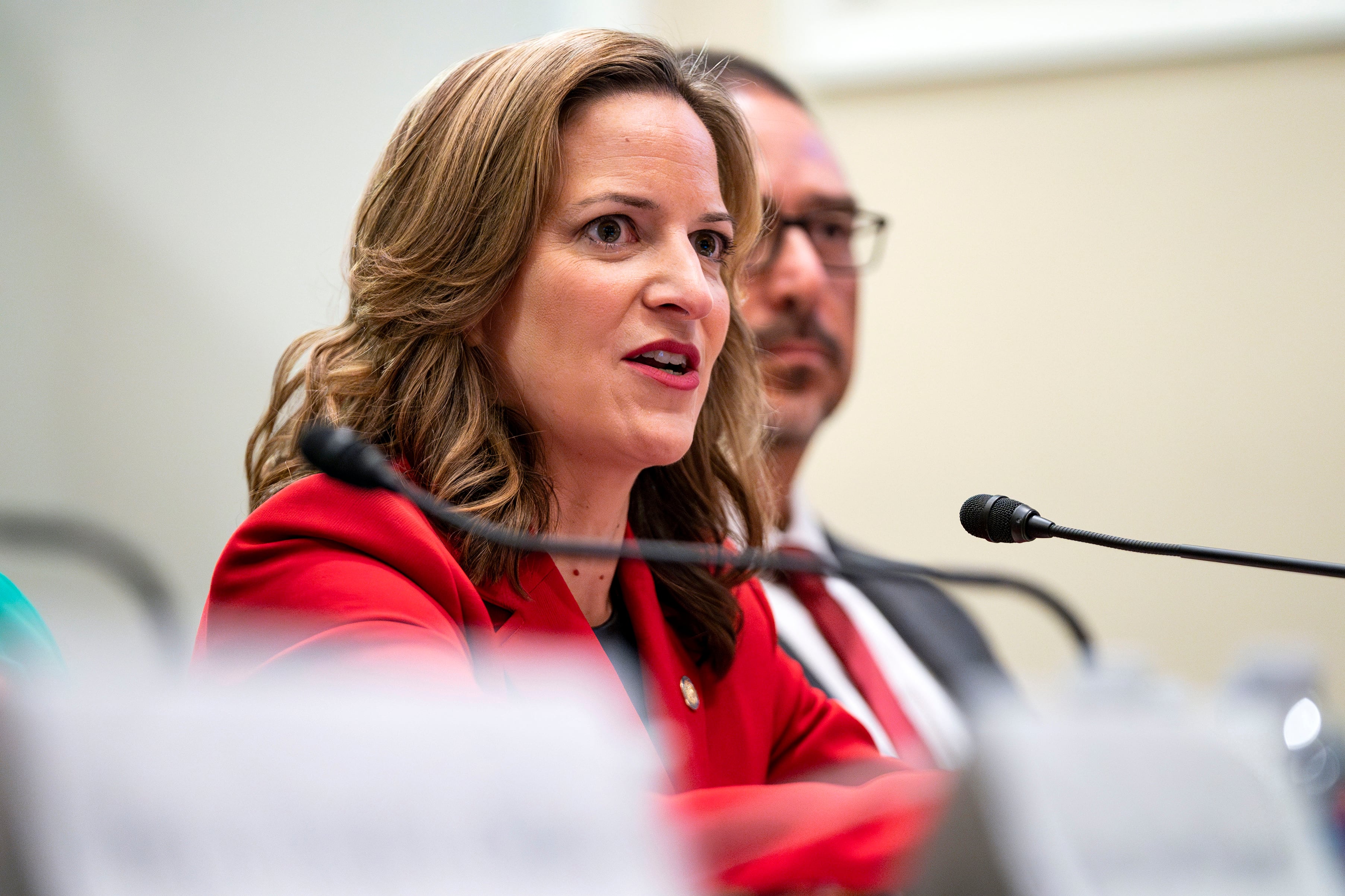Votebeat is a nonprofit news organization reporting on voting access and election administration across the U.S. Sign up for Votebeat Michigan’s free newsletter here.
Michigan Secretary of State Jocelyn Benson said she will work with lawmakers on election security legislation that would help guard against noncitizens casting ballots, but opposes a Republican-backed proposal that would require people to provide documentary proof of U.S. citizenship when registering to vote.
She didn’t provide details of her proposal, but said potential changes could include “policies that enable us to track and retrieve” ballots cast by voters who registered the same day as the election.
“It could be provisional ballots, it could be additional verification or residency requirements in that moment,” she said at a news conference Thursday.
Benson, a Democrat, said the proposal from a top Michigan House Republican to add a proof-of-citizenship rule to the state constitution “would be taking a chainsaw to our election system when we’re trying to address one specific, isolated circumstance.”
She also criticized federal legislation known as the SAVE Act that is pending before Congress and also seeks to require documentary proof of citizenship from people registering to vote.
Federal law already bans noncitizens from voting in federal elections, but it doesn’t require documentary proof of citizenship. Rather, voters seeking to register must attest to their U.S. citizenship under the penalty of perjury.
Rep. Bryan Posthumus, the House majority floor leader and the Republican lawmaker leading the effort to require proof of citizenship in Michigan, told Votebeat later Thursday that he’s glad Benson is acknowledging the problem. He said he planned to reach out to her to potentially work on legislation together, although a joint solution might not be possible.
“I don’t see a scenario where you can effectively prevent foreign nationals from voting in our elections without requiring proof of citizenship or some other verification of citizenship,” he said.
He added that he’s done “some pretty intricate cuts with a chainsaw before.”
Both Benson and Posthumus are responding to a single known instance of a noncitizen voting in Michigan’s 2024 general election, when a University of Michigan student who is a Chinese citizen registered to vote and cast a ballot the same day. The student, 20-year-old Haoxiang Gao, now faces felony charges.
According to emails obtained by Votebeat through a record request, Ann Arbor Clerk Jackie Beaudry told the county prosecutor and the state director of elections that Gao used his student ID and attested to his U.S. citizenship more than once before casting his ballot. Gao ultimately called the clerk’s office himself and admitted what he had done, Beaudry wrote, and he called local police as well.
Gao’s case highlighted what Republican leaders have since described as significant potential loopholes in Michigan’s same-day registration laws, which voters added to the state constitution in 2018.
Posthumus cited the case when introducing House Joint Resolution B, which would amend the state constitution to require all voters to provide proof of citizenship when registering and would also require the Department of State to “use an ongoing systematic process” to confirm the citizenship of registered voters.
Benson said such a requirement would potentially disenfranchise anyone who doesn’t have such documentation readily available, a group that could include college students or elderly people.
Arizona, the only state that currently enforces a proof-of-citizenship requirement, has a split registration system that allows voters who cannot provide such documentation to vote in federal elections but not state or local elections. A Votebeat analysis found that people living on Native land, on or near college campuses, or using the address of the state’s main homeless campus were most likely to wind up on the federal-only voter rolls. Such voters were far less likely to vote last November than those who had shown proof of citizenship.
Benson, who is campaigning for the Democratic nomination for governor, said she wants to consult clerks on the best way to craft the legislation.
She was joined at the press conference Thursday by Sen. Jeremy Moss, a Democrat from Southfield who chairs the Senate Elections and Ethics Committee, as well as Rep. Stephen Wooden, a Democrat from Grand Rapids and the minority vice chair of the House’s Election Integrity Committee.
Hayley Harding is a reporter for Votebeat based in Michigan. Contact Hayley at hharding@votebeat.org.





